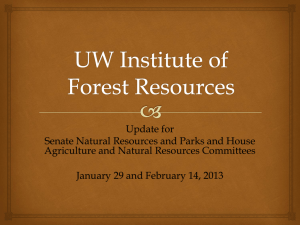Landscape Linkage PhD_final - UW School of Environmental and
advertisement
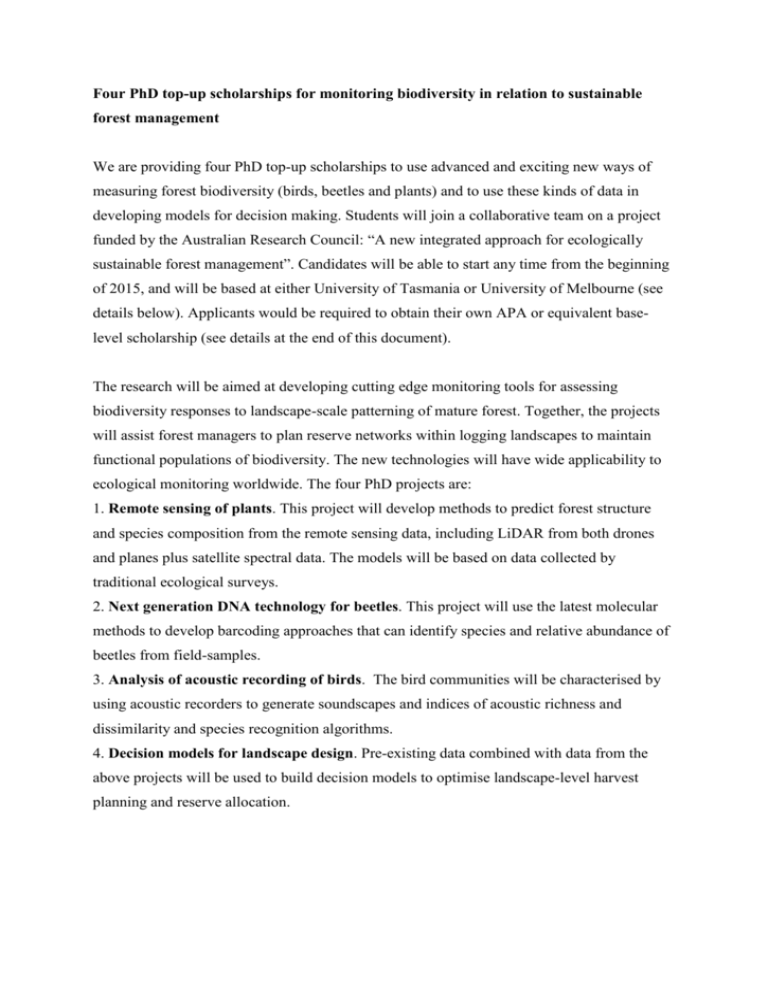
Four PhD top-up scholarships for monitoring biodiversity in relation to sustainable forest management We are providing four PhD top-up scholarships to use advanced and exciting new ways of measuring forest biodiversity (birds, beetles and plants) and to use these kinds of data in developing models for decision making. Students will join a collaborative team on a project funded by the Australian Research Council: “A new integrated approach for ecologically sustainable forest management”. Candidates will be able to start any time from the beginning of 2015, and will be based at either University of Tasmania or University of Melbourne (see details below). Applicants would be required to obtain their own APA or equivalent baselevel scholarship (see details at the end of this document). The research will be aimed at developing cutting edge monitoring tools for assessing biodiversity responses to landscape-scale patterning of mature forest. Together, the projects will assist forest managers to plan reserve networks within logging landscapes to maintain functional populations of biodiversity. The new technologies will have wide applicability to ecological monitoring worldwide. The four PhD projects are: 1. Remote sensing of plants. This project will develop methods to predict forest structure and species composition from the remote sensing data, including LiDAR from both drones and planes plus satellite spectral data. The models will be based on data collected by traditional ecological surveys. 2. Next generation DNA technology for beetles. This project will use the latest molecular methods to develop barcoding approaches that can identify species and relative abundance of beetles from field-samples. 3. Analysis of acoustic recording of birds. The bird communities will be characterised by using acoustic recorders to generate soundscapes and indices of acoustic richness and dissimilarity and species recognition algorithms. 4. Decision models for landscape design. Pre-existing data combined with data from the above projects will be used to build decision models to optimise landscape-level harvest planning and reserve allocation. The first three positions will be based in Greg Jordan and Sue Baker’s forest ecology lab in the School of Biological Sciences at UTAS, with fieldwork in both Tasmania and Victoria. The fourth project will be based in the Vesk Ecology Lab in the School of Botany at Melbourne University (part of the Centre of Excellence for Environmental Decisions). Potential applicants should contact: Sue Baker (bakers@utas.edu.au) or Greg Jordan (greg.jordan@utas.edu.au) or, for particular projects: - Beetles and meta-barcoding: Sue Baker (bakers@utas.edu.au) or Chris Burridge (Chris.Burridge@utas.edu.au) - Birds and acoustic sensors: Tim Wardlaw (Tim.Wardlaw@forestrytas.com.au) or Yuliya Karpievitch (Yuliya.Karpievitch@utas.edu.au) - Plants and remote sensing: Arko Lucieer (Arko.Lucieer@utas.edu.au) - Decision theory and forest management planning: Peter Vesk (pvesk@unimelb.edu.au)
![presentation [MS PowerPoint 189KB]](http://s2.studylib.net/store/data/005263596_1-69d08c3f7e80bd1aee48ef31e66ebbc5-300x300.png)

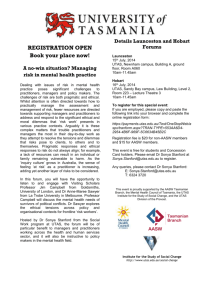

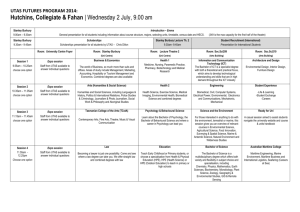
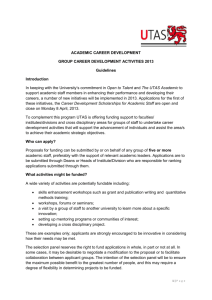

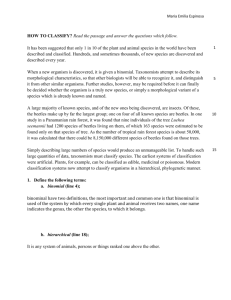
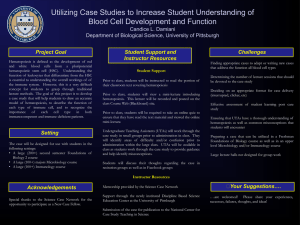
![Post Graduate Education []](http://s3.studylib.net/store/data/006803494_1-b6447e367782270079f2dcab263e0d3b-300x300.png)
